
The Business of Fashion
Agenda-setting intelligence, analysis and advice for the global fashion community.

Agenda-setting intelligence, analysis and advice for the global fashion community.
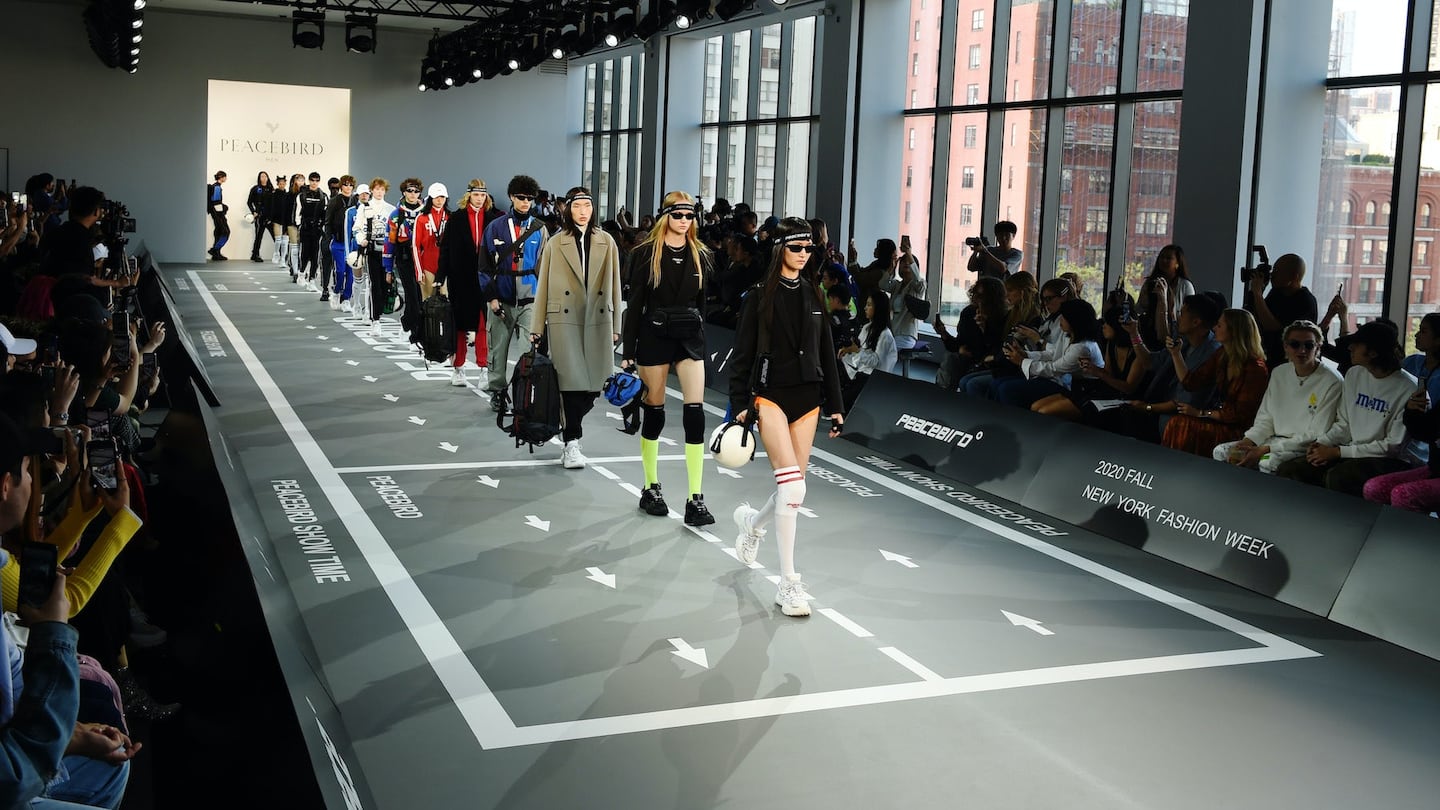
PARIS, France — Founded in 2008 and describing itself as a "digital mall with virtual storefronts," Alibaba-owned Tmall now has more than 670 million consumers. The platform stocks more than 190,000 brands, and its Luxury Pavilion — a platform for luxury and premium goods — hosts a curated selection of more than 140 brands in apparel and beauty, watches and luxury cars, stocking labels like Valentino, Burberry, Stella McCartney, Rimowa, Maserati and Givenchy.
Originally known as the gateway to China for Western brands due to its successful engagement of so many Chinese consumers, Tmall has over the years become one of the most effective incubators of domestic Chinese design talent.
This year, to further support domestic design talent, Tmall launched its “China Cool” programme — a series of events and activations showcasing Chinese designers in New York, Milan and Paris fashion weeks. “There is growing recognition of the creativity and talent coming out of China,” says Bo Liu, general manager of Tmall and Taobao Marketing.
The platform also intends to publish a report identifying the aesthetic trends it believes will resonate with Chinese consumers in the first half of 2020. Combining the uniquely powerful insights generated by Alibaba’s platforms as well as additional industry reports and social media data, the report aims to help brands and designers make data-driven decisions that match consumer demands, save product development time, and boost conversation rates.
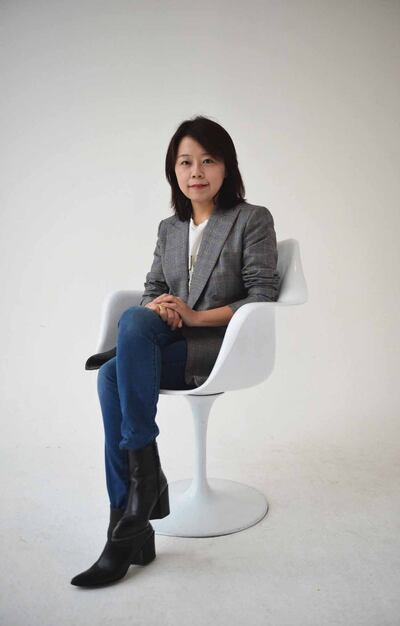
Jessica Liu, general manager of Tmall Fashion and Luxury | Source: Courtesy
Now, BoF meets Jessica Liu, general manager of Tmall Fashion and Luxury, and Bo Liu, general manager of Tmall and Taobao Marketing, to discover how Tmall plans to continue supporting design talent through its "China Cool" programme — before hearing from four designers showcasing at Milan and Paris fashion week — who share their insights on the growing global interest in their designs and aesthetics.
BoF: How is Tmall fostering Chinese design talent?
JL: Most people in the West associate Tmall as the gateway to Chinese consumers — and we are. Many of the brands showing at Paris Fashion Week have Tmall storefronts. But Tmall is also home to Chinese fashion brands that are lesser known on the global stage. We see ourselves as a cultural bridge in many respects.
Our participation in New York, Milan and Paris fashion weeks is one example of how we are supporting our brands. We selected emerging and established brands who we think could have real international appeal. We have a unique role to play in this space and can be instrumental for “China Cool” to be discovered and enjoyed worldwide.
BoF: How have you seen the international response to emerging Chinese designers change?
BL: We participated in New York Fashion week for three years running and this year we added Milan and Paris because of the rising interest. I think there is growing recognition of the creativity and talent coming out of China.
The FMCG world might even be ahead of the fashion world when it comes to appreciating Chinese design. Many global brands will tell you they pull out all the stops for Chinese consumers when it comes to packaging, personalisation and creative formats. Consumers are simply more demanding and the market is very competitive.
It’s only a matter of time before the fashion world takes note as well. Today, every brand needs to incorporate design thinking — whether it’s a consumer product or a fashion label.
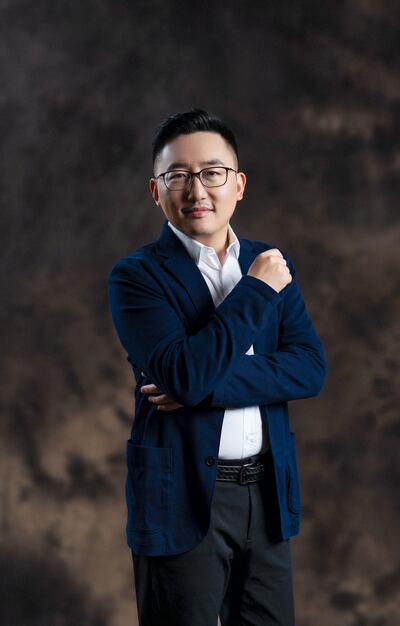
Bo Liu, general manager of Tmall and Taobao Marketing | Source: Courtesy
BoF: What impact do you expect Chinese designers to have in the retail market?
JL: Chinese consumers are incredibly brand aware, but not especially brand loyal. They are always looking for the next new thing — the newest product, the newest designer. These consumers are already having a massive impact on the fashion world, especially the luxury market. So global designers are already creating with Chinese consumers in mind. But Chinese designers know Chinese consumers better than anyone, which will help them gain traction and grow faster.
Retail sales in the Western world are struggling. High-end department stores are having trouble enticing people to spend time in their stores. I think Chinese designers can bring much-needed excitement to the design world. Consumers want fresh perspectives and I think this new crop of talent coming out China can do just that.
BoF: How is the growing consumer interest in China’s cultural heritage impacting emerging designers?
BL: We’ve experimented with lots of crossover collaborations and witnessed incredible results from pairing traditional brands with cutting-edge fashion brands. These work especially well when it comes to breathing new energy into Chinese heritage brands consumers remember from their childhood.
For example, Chinese confectionery brand Hsu Fu Chi and clothing brand Tyakasha worked together to develop a pineapple cake-inspired qipao, which is a traditional Chinese dress. These crossovers have driven up store visits and conversations.
BoF: How does Tmall use data to support designers?
JL: We take the insights gleaned from our platform, combining them with industry reports and social media data, to come up with trends that brands can consider incorporating into their designs. We will be issuing a trend report that identifies 20 specific fashion elements we believe will resonate with Chinese consumers in SS20.
Some highlights include a return to very feminine shapes and colors, large ruffles, functional tech-wear, pastel color blazers and loose crop tops. Athleisure has been big in China for a while but we are now seeing a turn toward functional, technical clothes. And we also see a strong interest in Chinese heritage – taking traditional Chinese aesthetics and making them fresh and modern.
BoF: How does Tmall support emerging Chinese brands?
JL: We see ourselves as supporting all kinds of designers and brands, emerging and established. The beauty of Tmall is that when you open a storefront on the marketplace, you have access to the more than 670 million consumers shopping on our marketplace. It’s important to note that unlike other online platforms, we are not a retailer. We are partners, never competitors with the brands on Tmall. So our interests are wholly aligned. Everything we innovate is in the interest of helping our customers build their brands and engage consumers.
Tmall was actually built for the long-tail, content rich, editorial and brand-focused world of fashion. One of the reasons fashion brands open storefronts on Tmall is because we provide them infinite ways to tell their brand story and engage consumers on their terms.
Fashion is different than any other category in that consumers demand much more content before they make a purchase. They want to see what it looks like on people like them, they want to see the fabric up close, how the garment moves, what the finishes look like, what other people are saying about the products, and they want editorial inspiration to create their unique look. We believe brands can meet all these needs and more on the Tmall platform.
Now, BoF sits down with four designers showcasing their collections as part of the "China Cool" programme.

Peacebird Design Director Yangwei Hong | Source: Courtesy
Yangwei Hong, Design Director of Peacebird, founded in 2008
How has the Chinese fashion industry evolved?
Today, China has everything: from good design, good domestic brands, to tremendous market potential. But, for international consumers to get to know Chinese brands, these brands need a global stage to showcase themselves. Peacebird hopes to make its own contribution to the rise of Chinese design, which is why we are participating in Paris Fashion Week. We are proud to be showing here for the first time, representing a new wave of Chinese designers making an impact on the world.
What was your path to becoming a design director?
I am all about creation, disruption and constant learning, which Peacebird embodies. We are constantly reinventing ourselves, which we believe is why we our consumers stay engaged and loyal to the brand.
For Spring/Summer 2020, we are bringing both Peacebird's men's and womenswear lines to Paris. The new collection is inspired by two concepts: collegiate and future. Being a student is a phase everyone goes through — you can be rebellious, fearless, traditional or open-minded as a student. It is an incredible time of life. We also imbued our vision of future with Parisian romance.
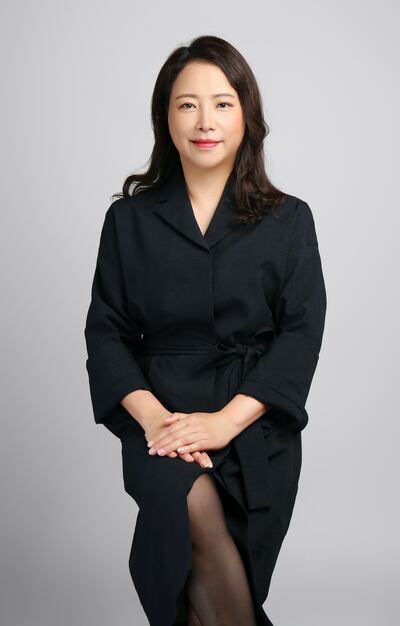
Eifini Founder and Chairwoman, Xiaoyun Qian | Source: Courtesy
Xiaoyun Qian, Founder and Chairwoman of Eifini, founded in 2001
How has the Chinese fashion industry evolved?
There are exciting things happening in China’s fashion industry: consumers are demanding more fashion-forward and personalised products, and Chinese designers are becoming more and more creative. They are not just looking at what is trending elsewhere in the world, but looking introspectively into Chinese culture and modern lifestyles in China. The idea of “China Cool” is growing in popularity. This collection was inspired by the movie “Alice in Wonderland.” In terms of design, we used some men’s fashion elements from the Victorian-era such as delicate silk shirts, decorative knots and extravagant accessories.
Do you believe the impact of Chinese brands on the international market is growing?
Absolutely. Eifini has done a few “China Cool” collaborations with the Forbidden Palace and with local design schools to incubate emerging designers. Compared to just a few years ago, we are seeing an uptick in activities of Chinese brands on the global stage. “China Cool,” which includes the revival of traditional Chinese dresses, is one trend that has been popular and inspiring more international brands to do collaborations with independent Chinese designers.
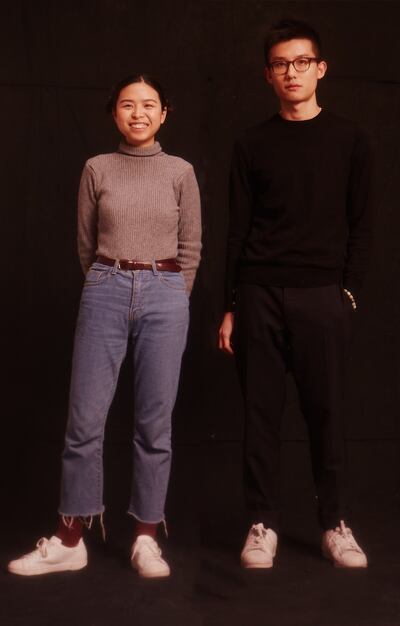
SHUSHU/TONG designers Liushu Lei and Yutong Jiang | Source: Courtesy
Yutong Jiang, Designer at Shushu/Tong, founded in 2015
How has the Chinese fashion industry evolved?
It is a unique era for Chinese designers and there is no shortage of creativity. It’s impossible to pinpoint any commonalities because we are seeing so many different styles coming from Chinese designers who are not afraid of expressing themselves. Young consumers are drawn to the new design aesthetics that are emerging and I think many Chinese designers are devoted to their design and want to create collections that make them proud. When you are that dedicated, I think you can expect to eventually draw attention from all over the world.
What does it mean for you to show at Milan Fashion week?
It’s our first time showing at Milan fashion week and we hope to attract the attention of the European media and buyers. Anime was a big influence on both me and my co-founder Shushu — I used to draw beautifully dressed anime girls when I was bored in class. I especially loved the characters Cardcaptor Sakura and Nana, but the Spring/Summer 2020 collection was inspired by the movie The Red Shoes. In the movie, the relentless pursuit of dancing conflicts with [the protagonists] desire to love, which eventually leads to tragedy. I was drawn to this image of an elegant yet powerful young girl against this fantastic baroque ballet backdrop.
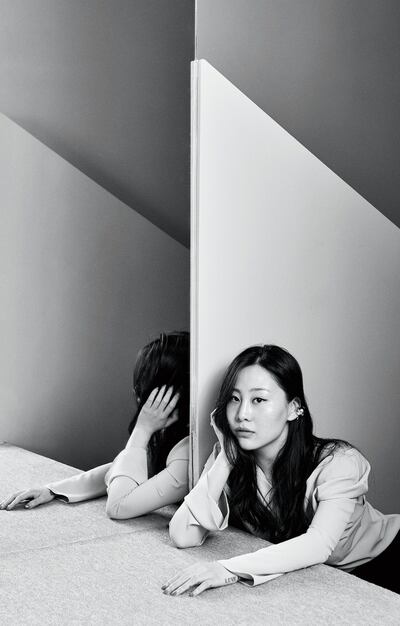
Yirantian Guo, Brand Owner and Creative Director | Source: Courtesy
Yirantian Guo, Brand Owner and Creative Director of Yirantian, founded in 2014
How has the Chinese fashion industry evolved?
Many traditional fashion retailers have transitioned to boutique-style retailers that carry selective designer brands. We can see they are trying to put designer brands in a more important position, so I expect to see more high-profile media coverage on Chinese designers. Another opportunity is to have more collaborations with global companies on the business side. It has been five years since the founding of our brand and we see growing demand each year.
What does it mean for you to show at Milan Fashion week?
It is a bold experiment for us. We do not have showrooms abroad yet and it is our first time doing a fashion show outside of China. I think it is the first step in a new chapter for us. By showing in Milan Fashion Week, I want to raise the profile of my brand and expand our distribution into boutique stores — in addition to keeping a healthy share of our existing market. Last year, we opened our Tmall flagship store, which helped us to better understand the right customers for our brand and raised our brand profile.
This is a sponsored feature paid for by Tmall — a supporting partner of the BoF500 2019.
From analysis of the global fashion and beauty industries to career and personal advice, BoF’s founder and CEO, Imran Amed, will be answering your questions on Sunday, February 18, 2024 during London Fashion Week.
The State of Fashion 2024 breaks down the 10 themes that will define the industry in the year ahead.
Imran Amed reviews the most important fashion stories of the year and shares his predictions on what this means for the industry in 2024.
After three days of inspiring talks, guests closed out BoF’s gathering for big thinkers with a black tie gala followed by an intimate performance from Rita Ora — guest starring Billy Porter.